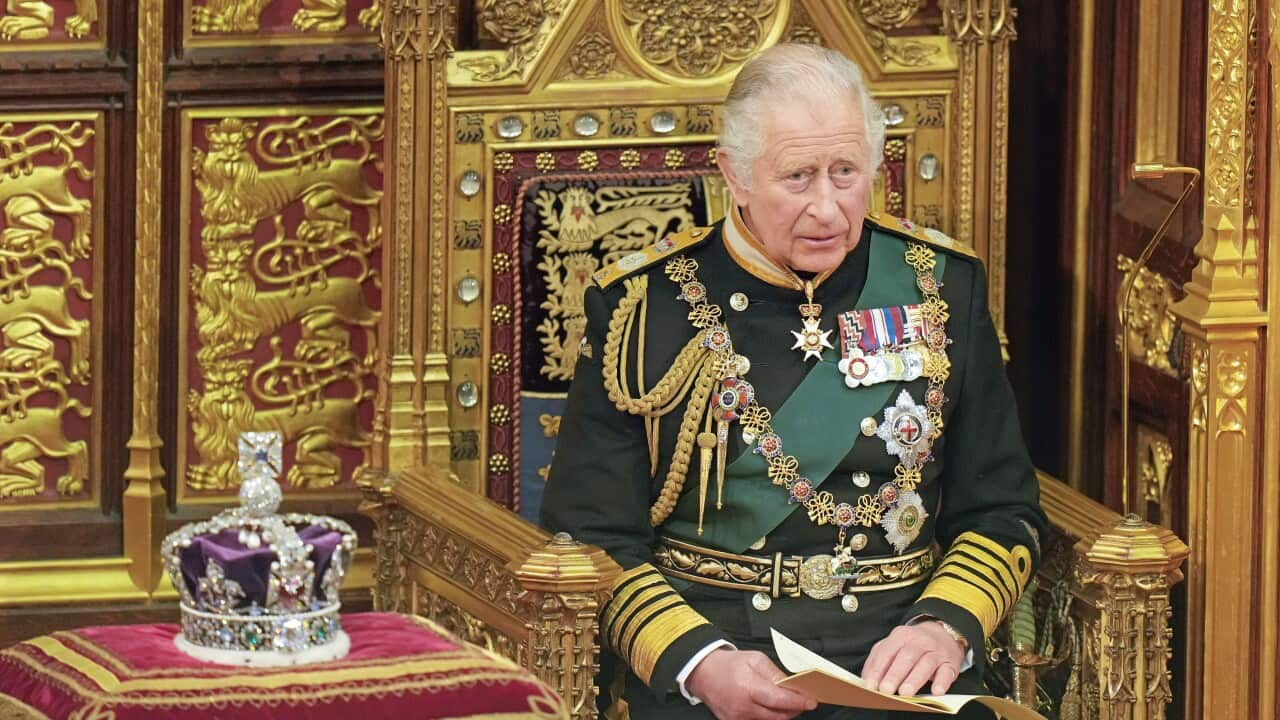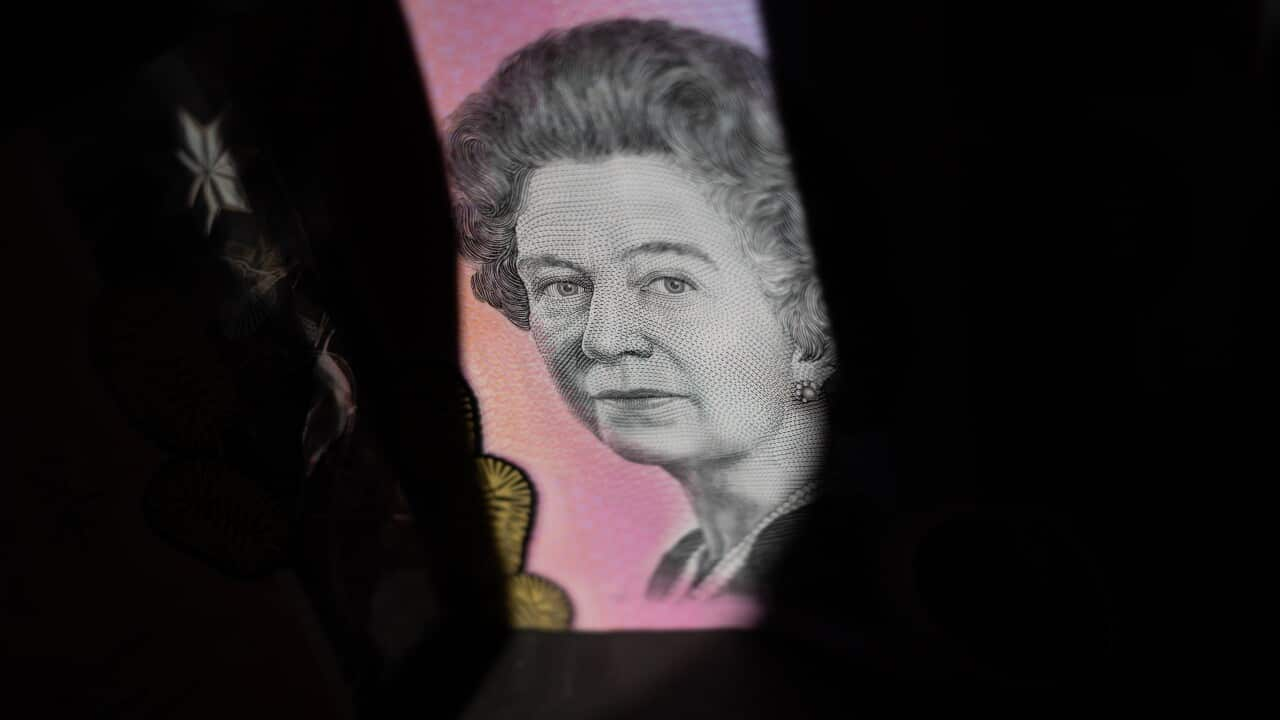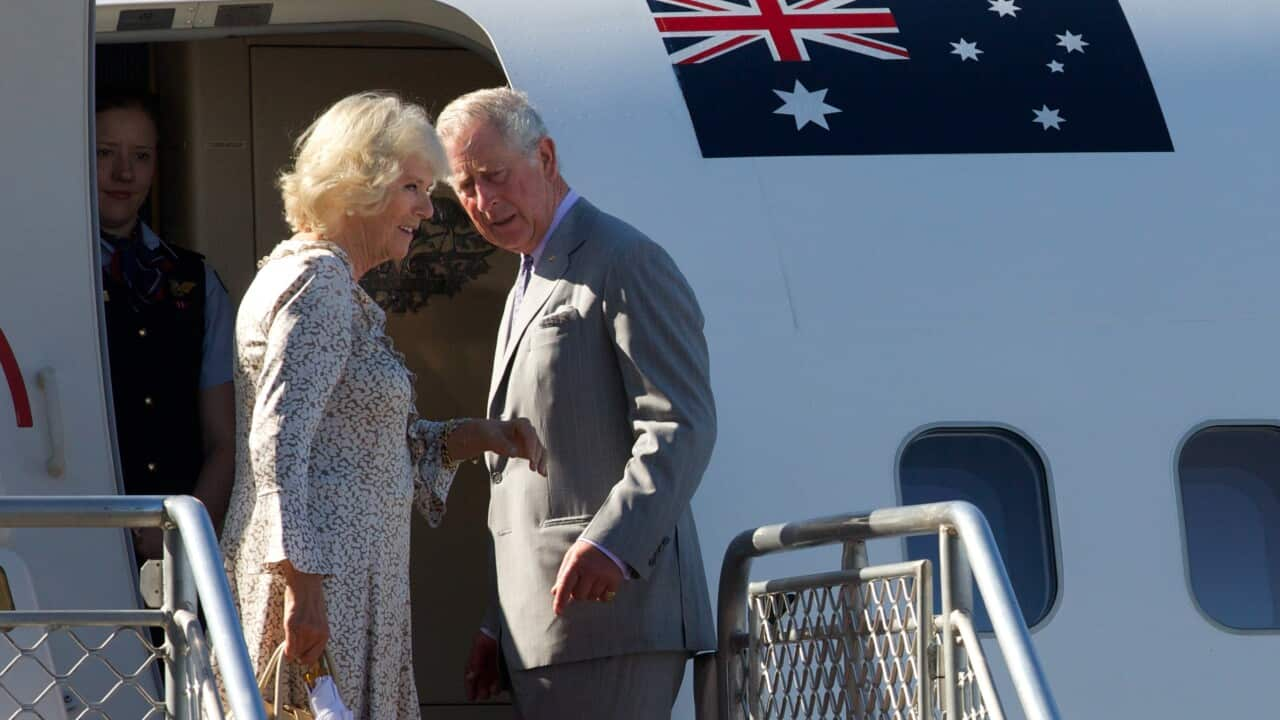Australia and other Commonwealth realms have a new monarch. What does the King do?
- Having ascended the throne following the death of his mother, Charles III is now King of the United Kingdom and 14 other Commonwealth realms including Australia.
- From the UK Parliament to foreign territories, the role of the monarch is mostly ceremonial.
He will be crowned in a special ceremony televised around the world, his likeness will grace one side of Australia's coins and the country get a , but what is it that a monarch does and what is the role King Charles III will now play?
Dr Cindy McCreery, senior lecturer in history at the University of Sydney said, "There's not a lot he has to do", as his role is mostly ceremonial.
His Majesty’s responsibilities
"Really what is left for the monarchy in Britain today are a few ceremonial activities," Dr McCreery said.
Up until the late 17th century, British monarchs ruled in a much greater sense than they do today.
While earlier Kings and Queens had been absolute monarchs, the British Royal family has now operated within a constitutional monarchy system for more than 300 years.
Following what was termed the Glorious Revolution, the monarch in the UK had to rule in accordance with parliament.
The monarch's main responsibility is appointing and dismissing the UK prime minister.
"But again, that's on the advice of the government," Dr McCreery said.

The late Queen Elizabeth II welcoming Liz Truss during an audience at Balmoral, Scotland, where she invited the newly elected leader of the Conservative party to become UK prime minister and form a new government. Source: AAP / Jane Barlow
Dr McCreery pointed out that there had been times in history when the reigning monarch had not carried out this duty.
"It's not a rule that parliament can't sit if the monarch hasn't opened it," she said.
As King, Charles III also picks up two other ceremonial roles, he becomes the head of the Anglican Church and head of the British armed forces.
"That's not something that the monarch gets directly involved in as opposed to previous centuries when monarchs did actually lead British armies, or English armies in particular, into battle," Dr McCreery said.
What is the King’s role in Australia?
As the monarch, King Charles III is Australia’s head of state, which is the highest representative of a territory.
This is the case for all 15 Commonwealth realms, including the United Kingdom.
While the monarch acts in a leadership role of the British armed forces and provides royal assent to legislation there, in Australia, the Governor-General as the King’s representative, fulfils these roles here.
"The Governor-General is, for all intents and purposes, acting, if you like, on behalf of the monarch in Australia," Dr McCreery said.

King Charles III has connections with a number of charities. Here he had been meeting with representatives of the British Asian Trust before they embarked on the charity's 'Palaces on Wheels' cycling event in England. Source: AAP / Arthur Edwards
The Sovereign and British politics
UK prime ministers often made mention of the late Queen’s political knowledge, something they noticed through their weekly meetings with her, a practice that King Charles has already picked up.
"It's a custom rather than any rule, a custom that's been very well observed," Dr McCreery said.
"The monarch does retain the right to be consulted and also the right to advise and to warn, however, there is no obligation on behalf of the prime minister to listen to anything that the monarch says or to act on it."
She said the purpose was for the King or Queen to be briefed on government matters.
"There's absolutely no record of those meetings, or, what, if any influence, the Queen might have had on the prime ministers of her reign," Dr McCreery said.
King Charles, like his mother before him, has a close circle of royal family members who are known as Counsellors of State, who are able to step in for him in certain situations.
In terms of what Charles does every day, really, there are relatively few requirements.
Everyday life for the King
King Charles and Queen Consort Camilla are expected to move to Buckingham Palace from Clarence House.
Although Dr McCreery said, like British Monarchs before him, the new King would likely spend time across a number of residences.
"In terms of what Charles does every day, really, there are relatively few requirements," she said.
She said he would play a diplomatic role, as the monarch is responsible for welcoming dignitaries such as ambassadors and High Commissioners to the Court of St James in the UK.
She expects him to spend some time travelling to Commonwealth realms and foster the royal family’s longstanding relationships with charitable organisations through engagements with the British public.
Dr McCreery said King Charles may choose to focus some of his time to promote environmental issues as he had done in the past and spend time on areas which he is passionate about which include architecture, town planning and organic farming.












